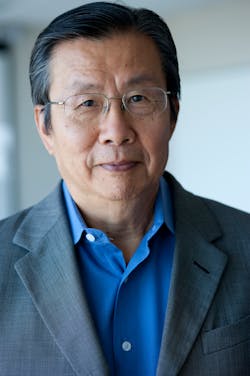Should we stop our government contracts to please our VC?

Q: We have several venture capitalists (VCs) interested in investing in our company, but one of their conditions is to stop our government contracts, which we feel are needed to develop the technology. Should we take their money?
A: There are three issues here. What is the right time for you to get VC funding? Do you want to burn bridges with your contract monitor? And what's the right way to work with your investors?
Venture capitalists are ideal investors when you have validated both market and technology, and also face a market window that offers first-mover advantages. Even though the trend is for VCs to get in on early-stage companies, that's usually not a good move for the company. VCs tend to be short-term focused, and there are hidden costs that come with their money. There is a tendency to make their companies invest in infrastructure and a complete management team in anticipation of a rapid ramp-up regardless of whether the needs exist. They also want big wins. It is not uncommon for VCs to nudge the company to pursue a business model beyond the core competencies of the management team. That increases risk and also requires more investment, which dilutes the holdings of the common shareholders.
Your withdrawal would be a letdown to your contract manager who has a goal to achieve and the collaborators who are working on other parts of the project. That would make it difficult for you to go back to them for future funding. In today's environment, government agencies encourage commercialization for their own procurement reasons. They are very flexible on how you direct your projects as long as the activities stay within the statement of work. Given the alignment of purposes, it is not clear why you wouldn't want to take the contract money instead of the investors' to retain more ownership of your company.
I am surprised there isn't a better working relationship between you and the VC. You are still at the courtship stage and communication seems to have already broken down. One would have to wonder what it's going to be like after the "marriage." Since this is the beginning of a long journey, thoroughly check references to understand how these particular VCs work with their companies.
Q: How do we hire a VP of finance for the company we founded recently without knowing much about finance?
A: The short answer is to engage a recruiter who specializes in placing finance personnel. Since none of you are experienced at this, have someone you trust who is experienced and knowledgeable help you evaluate the candidates' technical skills. Your assessment can then be focused more on attitude, motivation, and how they interact with the rest of the company. The function of the finance department is much more than keeping books and controlling expenses, or interacting with the financial community. The more important purpose is to provide business context to the managers to allow them to make better business decisions. That's a function that requires people and communication skills, persistence, and hard work. Unfortunately, a lot of people in finance do not understand this.
I would question whether you really need a VP of finance at this point because what you need is someone with hands-on experience in implementing systems, rather than a financial architect who is more interested in strategy. What you need is a good controller to do the work. Also, unless you have strong backing from top-tier VCs it is unlikely you can attract a high-caliber VP of finance.
My opinion is one cannot delegate effectively if one does not understand the issues behind what is being delegated. This could be an opportunity to learn from the many candidates you will meet, and also assess their teaching skills, which are needed for the job.
About the Author
Milton Chang
MILTON CHANG of Incubic Management was president of Newport and New Focus. He is currently director of mBio Diagnostics and Aurrion; a trustee of Caltech; a member of the SEC Advisory Committee on Small and Emerging Companies; and serves on advisory boards and mentors entrepreneurs. Chang is a Fellow of IEEE, OSA, and LIA. Direct your business, management, and career questions to him at [email protected], and check out his book Toward Entrepreneurship at www.miltonchang.com.
